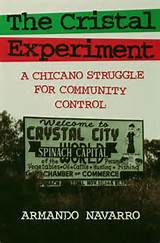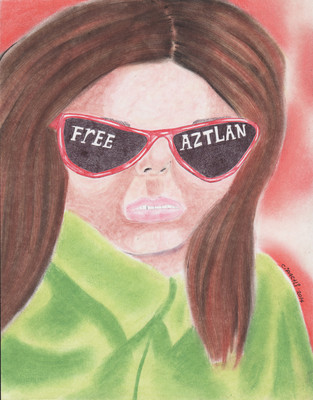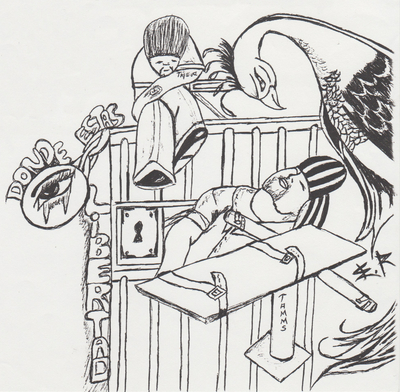
Sobre la reconstrucción de las divisiones nacionales y regionales
(traducido de Chican@ Power and the Struggle for Aztlán, p8-9)
por Cipactli
Los Chican@s dentro de las prisiones de Estados Unido$ están iniciando a sanar de los efectos de los cientos de años de colonialismo. Un indicador de esto es el histórico Acuerdo para Finalizar Hostilidades en las Prisiones en cual fue emitido desde el Security Housing Unit (Unidad de aislamiento de largo tiempo) en la prisión estatal de Pelican Bay, California en el 2012.(1) El hecho de que una guerra que duró más de 40 años entre los Chican@s en las prisiones haya parado es enorme. Ya no permitiremos que el estado nos manipule a emplear crimen entre moreno y moreno, y Chican@s conscientes dedicaremos nuestras vidas en la prisión a mantener este armisticio. Este paso es un movimiento enorme en la dirección a la paz y a la consolidación de la nación. Los Chican@s revolucionarios apoyamos este acuerdo de paz con nuestras vidas.
El proyecto de este libro es otro indicador de un salto en conciencia en la población Chican@ presa, el cual es el resultado del acercamiento y la unidad de Chican@s de los dos extremos de California a pesar de los esfuerzos de Amerikkka para dividimos. Esto es otro índice, el que tengamos pensamiento Chican@ de las regiones norteñas y sureñas de California unidos en este trabajo precioso. ¡Así es como se ve la reconstrucción de la nación!
La nación Chican@, como cualquier otro fenómeno, no es una masa estática y tiene muchas contradicciones. Las contradicciones que brotaron en este proyecto ayudaron a formar y expandir este libro, y se mantiene su fluidez en nuestra búsqueda de la verdad y el camino al futuro. Existen muchas formas de pensamiento Chican@ (Chicanismo) dentro de la nación y por todas las tantas regiones de Aztlán. Es la interacción de la gente con la realidad y el mundo material dondequiera que residan lo que le da nacimiento a su reacción en respuesta. La experiencia en nuestra vida fortalece y afecta nuestro crecimiento y no desafía así como seguramente enciende nuestras luchas. Los Chican@s existen en varios ambientes distintos, algunos más cercanos a México, comunidades blancas, ghettos negros, o a reservaciones. Algunos están conscientes otros no. El entender esta realidad social dentro de la nación es tal vez tan importante como el dedicar la vida de uno a sanar a la nación y el reconstruir a Aztlán. Sin el entendimiento de nuestras condiciones actuales, no podemos movernos hacia adelante.
El tema de este libro entonces puede sumarse mejor como cómo podemos analizar hoy a la nación Chican@ y los desarrollos históricos que están saliendo de las prisiones contemporáneas. Nuestra habilidad de vender nuestras “divisiones” históricas provocadas-por-el-estado como presos Chican@s tal vez puedan ser una contribución para los Chican@s fuera de las pintas quienes puedan estar divididos por contradicciones políticas y regionalismo.
Este proyecto no hubiera tenido éxito en este tiempo sin MIM(Prisiónes). Su duro trabajo debe ser aplaudido porque ayudaron a proveer varias formas de asistencia para este proyecto cuando muchos grupos han descartado a los presos Chican@s como indignos o incorregibles. MIM(prisons) fue extremadamente instrumental facilitando esta colaboración entre Chican@s de los dos extremos de California y el fortalecimiento de nuestros acuerdos de paz. Chican@ Power and the Struggle fro Aztlán (Poder Chican@ y la Lucha por Aztlán) solo pudo ser posible con su tiempo, trabajo y guía ideológica.
Tal vez no viviremos para ver nuestro trabajo ser victorioso, pero no lo hacemos por esto. Alguien dijo una vez “Tu no ganas, tú cambias el mundo” y supongo con este proyecto no contamos con ganar hoy pero si esperamos en crear un cambio para la nación Chican@, y, como un resultado, para el mundo.
Como Chican@s comunistas entendemos que pequeño regionalismo y etiquetas derivadas imperialistas son veneno para la nación. Este proyecto no es más que un preludio de lo que viene de parte del re-encendimiento del movimiento Chican@.
¡Aztlán libre!











